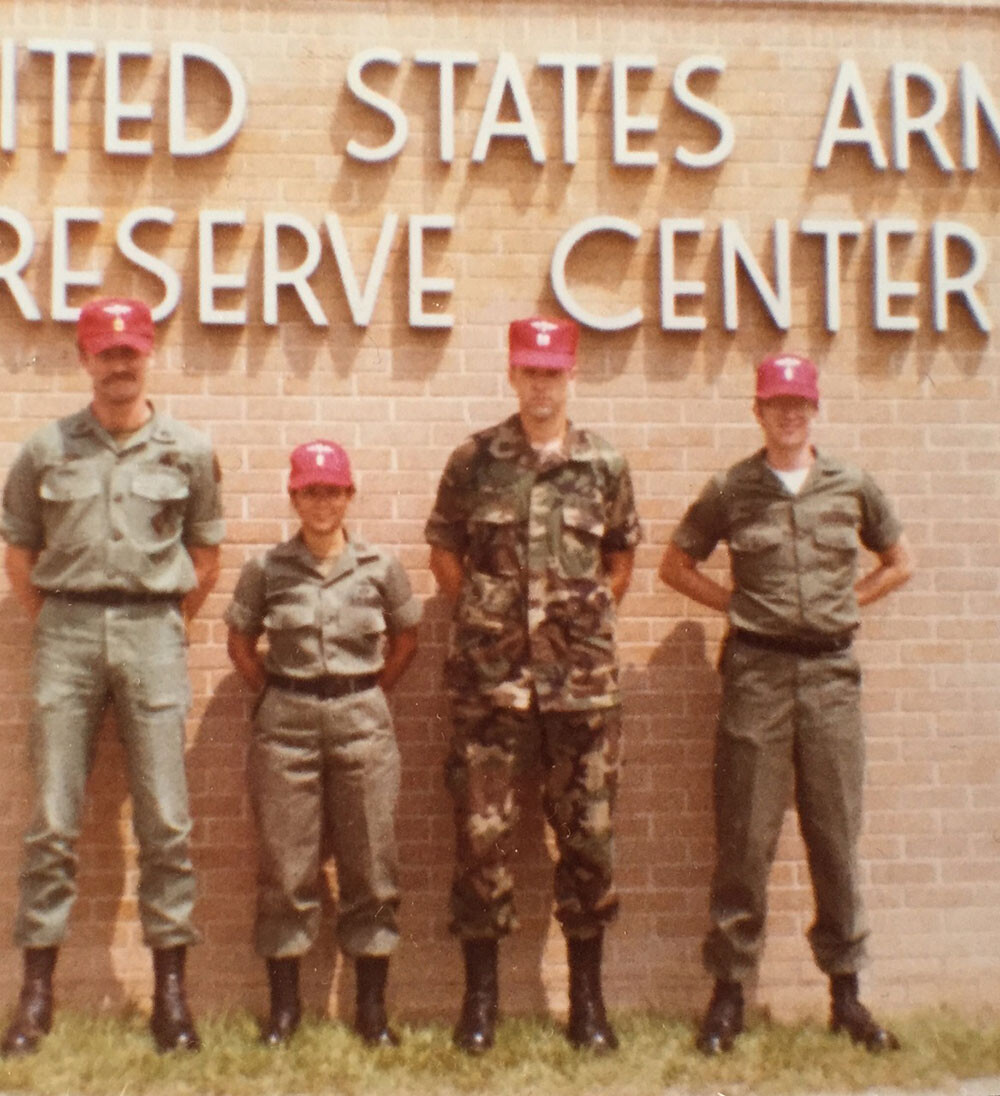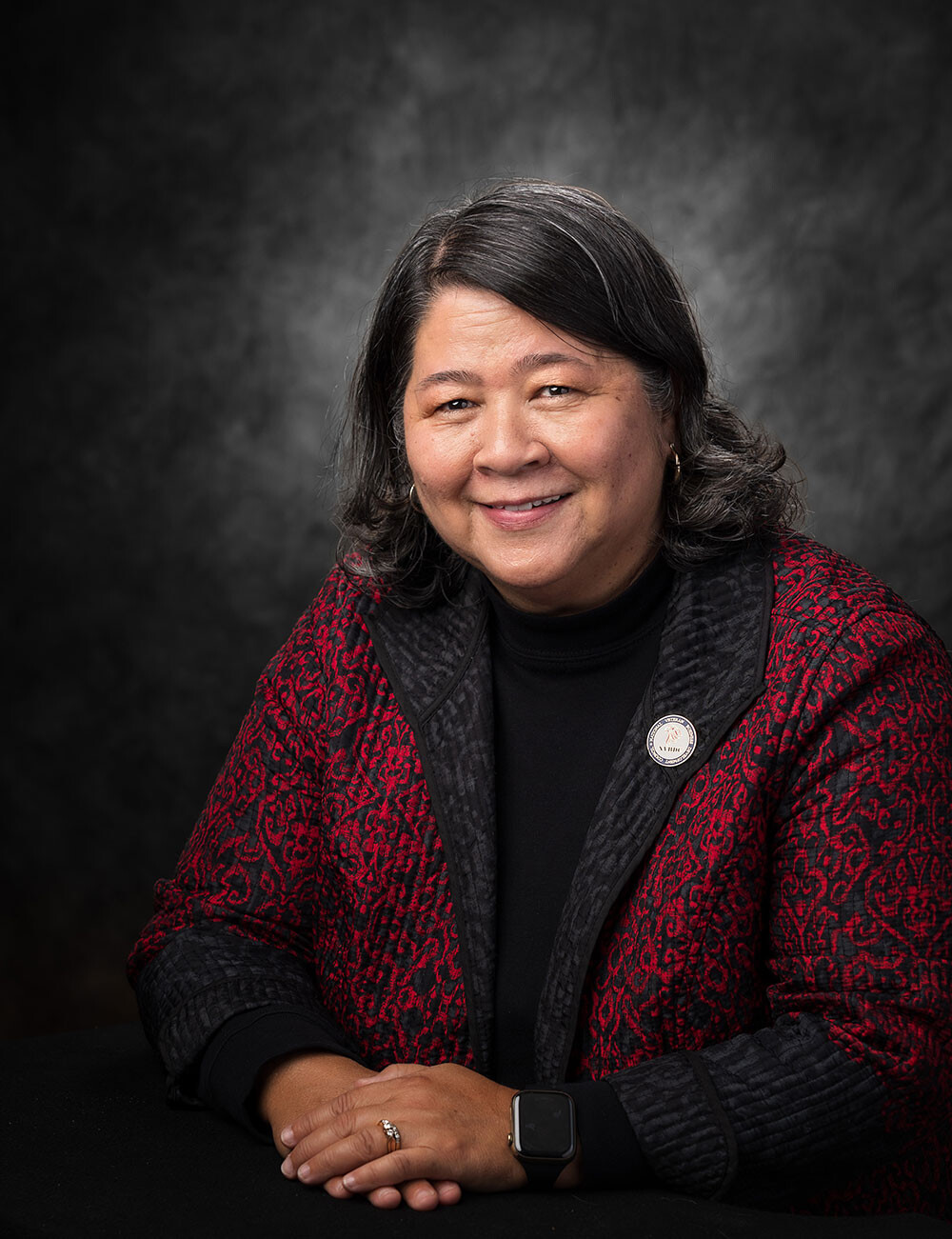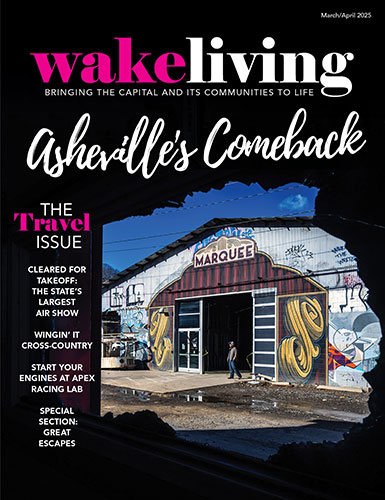Annette Hibbert (Snapp) Stevenson believes in intentionality. Long recognizing that if we don’t purposely promote diversity — to include veterans — we lose valuable skills, Stevenson’s involvement with the North Carolina Governor’s Working Group was a natural fit. “North Carolina was recognizing how do we help veterans transition and find new purpose,” she explains, “but also keep the talent here.”
Herself a North Carolina native and military veteran, Stevenson was well equipped to do just that.
A self-described “Army brat,” Stevenson was born in Italy to a Special Forces soldier and his wife, whom he’d met while serving in northern Thailand. She was raised primarily in Fayetteville, though when she was in elementary school the family was stationed in Thailand for three years, and she learned to speak Thai. The family returned to Fayetteville, where she attended Methodist College and graduated from their ROTC program as a second lieutenant.
During her 10 years of active duty in the Army, Stevenson had various assignments at Ft. Bragg, Germany, Maryland, and the Raleigh Recruiting Battalion. Reflecting on her career prospects after she left the military and during a transitional stage in her personal life, she’s contemplative: “Honestly, I wasn’t quite sure what I was going to do.”
First working for a few years at NC State and then at East Carolina University for a similar stretch, Stevenson moved back to Raleigh. It was around then that her sister-in-law asked her if she’d heard about “this company called SAS.”
Little did Stevenson know that she was embarking on her “civilian career launch.”
For her first few years at SAS, Stevenson worked as a procurement analyst. Her Army veteran supervisor then gave her the opportunity to create and manage the supplier diversity program that SAS was preparing to implement. After spending her next 13 years “working to help SAS be inclusive of diverse suppliers … the minority, women, and veteran-owned businesses,” Stevenson had laid the groundwork for her third act as president of Stevenson Consulting Group, where she’s found success at leveraging the federal, state, and corporate relationships she formed while working at SAS. Making the point that the value of your business rests on the value of your relationships, she poses the question: “Where are your relationships?”

Contributed photo
It was at SAS that Stevenson attended an impactful class about relationship mapping, some years after a briefing that she describes as “forever changing my thinking and impacting my work” while a second lieutenant at Ft. Bragg. Slide after slide in that briefing revealed how the well-known 82nd Airborne Division had to stay lean to quickly mobilize and required a lengthy pipeline of sophisticated logistics behind it to support the mission.
“What do you need? How do we get there? And what are the two steps down the road that you need to be ready for?” are just some of the considerations Stevenson carried into her civilian career that were reinforced by SAS and its “big-picture planning.”
Stevenson does acknowledge, though, that she still struggles with some of the differences between the military and civilian worlds and has had to learn to grow in some areas and step back in others. “We’re taught in the military to deny ourselves,” she says. “It’s about the team and getting the mission done. I had to learn to re-equip myself on how I speak to people, how to interact and not walk all over people, because in the military it’s typically a lead, follow, or get out of the way mentality — and that doesn’t work in the civilian world.”
Not that motherhood didn’t prepare Stevenson for some of the softer skills she would need to hone. “I was Captain Snapp at work, and then I came home to my 5-year-old son questioning me … and I wasn’t used to being continually questioned.” Later, after leaving the Army, she knew she had to embrace a new mindset — one that all veterans must adopt — which includes acknowledging that “It’s okay to go home at 5 p.m., it doesn’t all have to be done today, and people have different values and priorities.” Whereas in the Army it had been “mission first, people always,” and that mission had to be completed “as if someone’s life depends on it,” she explains, “out here your life depends on a salary, but not in the same way.”
Stevenson is equally frank when she concedes that “A lot of people are very hesitant to work with veterans and identify us as too aggressive, too dominating, too forthright,” but reinforces that “Veterans aren’t risk averse. Veterans are valuable and represent the full spectrum as minorities, women, service-disabled, and LGBTQ. We take the initiative and are willing to do all kinds of things, which most employers like.” That is why veterans largely make great entrepreneurs. And it’s not just veterans’ leadership and initiative; they are also great team players when the mission is understood and has defined roles and boundaries.
And that’s what the transition to civilian life is all about: a new mission and finding a new purpose for people who are used to being in charge and taking action. After all, says Stevenson, “That’s entrepreneurship.”
Promoting entrepreneurship among veterans came about for her because there were so many much-needed nonprofits trying to help the veteran community, “but it’s overwhelming to a veteran to get out and learn another language and deal with PTSD or TBI or benefits,” she says. The NC Department of Military & Veterans Affairs publishing a detailed guide for transitioning servicemembers — and including a section on entrepreneurship — was a way to aggregate resources and ensure that transitioning military personnel have options and support.
“I have trouble with the attitude of I’ve got mine; now you need to go get yours,” says Stevenson, who is also on the National Veteran Business Development Council Board of Directors. “It’s our responsibility to care and help with the next generation.”
Which is why she now works with farmers and promotes farming as a new career option for veterans. Briarwood Cattle Farm & Custom Meats Butcher Shop co-founders Tanisha and Marvin Frink credit Stevenson’s wholehearted passion and consistency for their success, admitting, “We wouldn’t be where we are today without her. We love her dearly for pouring into us.”
Whether it’s transitioning former servicemembers or small businesses, Stevenson believes that there is value in diversity that should be protected and promoted. “How do you know you have the best (supplier or employee) if you haven’t really looked?” she asks after decades of being “called to advocate” for veterans’ advancement and greater diversity and inclusion in business.
Although it may be easy to find a big firm to do business with, Stevenson asserts: “We can all do better.” Small and diverse businesses are the heartbeat of America, and that heartbeat will halt if there isn’t access to opportunities or funding.
The same goes for the advancement of former servicemembers. About a population that has served us all, Stevenson reinforces: “We lose valuable skillsets if we’re not intentional.”
And this Army veteran knows that the consequences of unintentionality can be devastating.
- Women of Western Wake: Annette Hibbert Stevenson
- Meet Cary Magazine’s 2024 Women of Western Wake
- Women of Western Wake: Sue Harnett
- Women of Western Wake: Katie Gailes
- Women of Western Wake: Elaine Buxton
- Women of Western Wake: Dr. Joy Allen
- Behind the Seams
- Garden Adventurer: Peony Patience
- Liquid Assets: Pub Ale
- Liquid Assets: Your Favorite Scarf
- Restaurant Profile: Myra Café
- Nonprofit Spotlight: Thrift2Gift
- Small Business Spotlight: Spavia Day Spa MacGregor Village
- Creative Awakenings
- On Trend: The Sandwich Method
- Things to Do: September 2024






